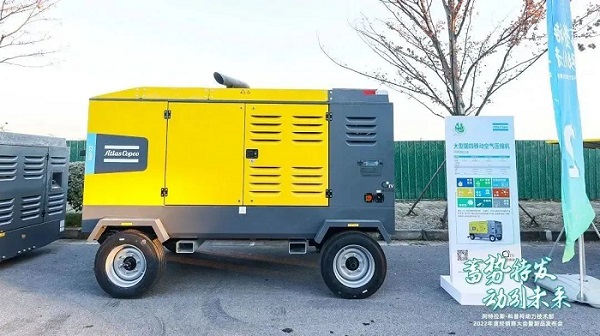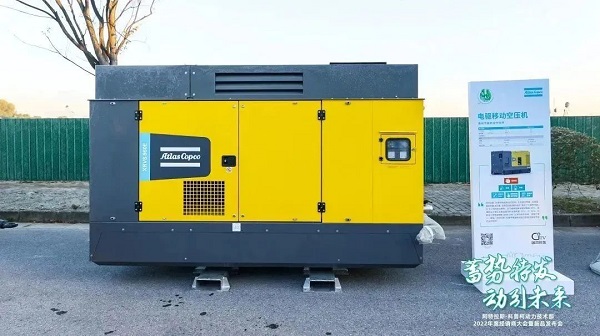The National Four Day Group is officially unveiled, ready to start and attracting the future!
Compared with the National III emission standard, the new National IV emission standard is more environmentally friendly. The National IV standard mainly raises the limits for nitrogen oxides and particulate matter, reducing nitrogen oxide emissions by 13-45 per cent and particulate matter emissions by 50-94 per cent.
In the annual running cost, the oil consumption of air compressor accounts for 80% or even more of the total running cost, but 30% of it is ineffective work and the oil consumption is greatly wasted. In this new product launch, X-AIR+ 600-17, X-AIR+ 670-18, X-AIR+ 777-22, medium-sized national four mobile air compressors equipped with PACE pressure regulating expert system, are dedicated to solving this oil consumption problem.

All diesel-driven air compressors comply with GIV (National IV emission standard), from medium-sized air compressors such as X-AIR+ 777-22 to large-sized mobile air compressors such as X-AIR 960-23, all of which are further optimised for the emission of hazardous gases and particles, helping to reduce the emissions of environmental protection.
The new range of electrically driven mobile units, with IP54 protection and Class F insulation, reduces running costs by 50 per cent compared to diesel compressors, and compressors can run at temperatures of up to 46°C (115°F), offering zero emissions, uninterrupted operation and low cost of ownership.

The electrification transition is a must for achieving carbon reduction targets, and as most renewable energy sources are not stable, energy storage technology is key in order to make the most of renewable energy sources. In the field of energy storage generators, Atlas Copco's Power Technologies business area has recently launched the ZenergiZe range of lithium-ion energy storage systems. This series uses high-density lithium-ion batteries as a solution.
The new ZBC250-500 and ZBP2000 use renewable energy storage to supplement the generator's power, and can achieve zero-emission, zero-noise, and zero-fuel-consumption operation when used in islanding mode, with different capacity options to meet the different needs of customers.
Atlas Copco has published a Group target for reducing carbon emissions, which is in line with the 2015 Paris Agreement and has been certified and approved by the Scientific Carbon Reduction Initiative (SBTi). The goal is to reduce the climate impact of its products through continuous technological innovation and to achieve emissions reductions by switching to renewable electricity, including that generated by solar, wind and other renewable technologies.


